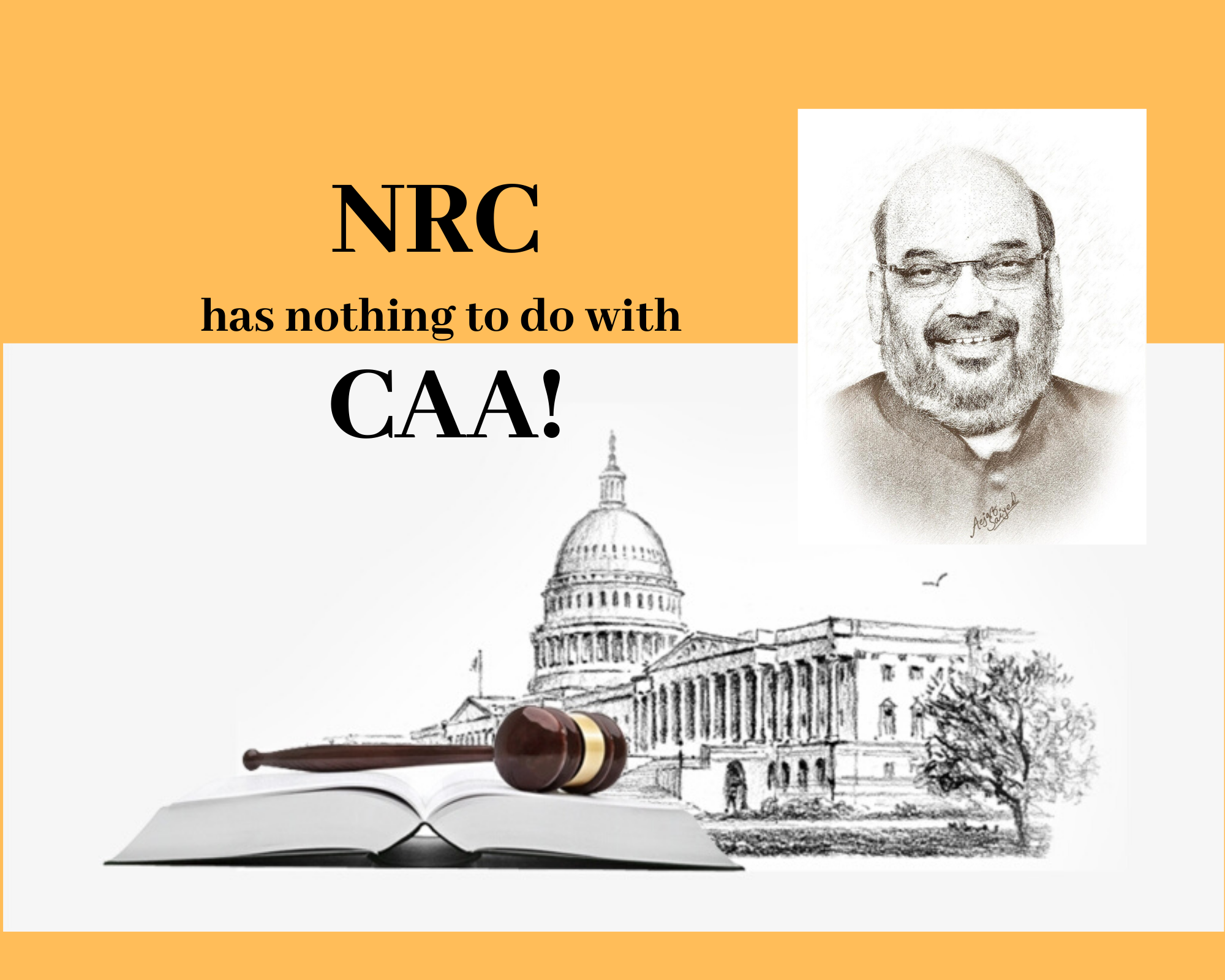Since the second innings of the saffron party of India – BJP has been throwing surprises for people of the country. Right after people overcame the bowler called ‘Revocation of Article 370’ and life in flower valley of India – Jammu & Kashmir came to normalcy; there comes another punch on the face of it known as ‘Citizenship Amendment Act’, often mixed with National Register of Citizens (NRC).
CAB (Citizenship Amendment Bill) was passed by Rajya Sabha on December 11 with 125 votes in favour and 105 votes against it. The bill turned into an act after it got the presidential nod on December 12. It is often related to the National Register of Citizens (NRC).
The NRC is still in its nascent stage as it is just a proposal. As of now, it is only applicable in Assam to prevent illegal migrants entering the state and also to detain them. However, Union Home Minister Amit Shah claims NRC to be a state-specific exercise. It is practised in Assam so as to detect any illegal migrant into the state, irrespective of their caste, creed or religion and deport them.
| CAA |
NRC |
|
Citizenship Amendment Act shall provide citizenship on the basis of religion. |
NRC is not related to any religion. |
| It favours non-Muslim migrants – Hindu, Sikh, Christian, Jain, Buddhists and Zoroastrians. | It aims to detain and deport any illegal migrants irrespective of their religion. |
| Migrants from Muslim-majority neighbours of India i.e. Bangladesh, Afghanistan and Pakistan will be granted the citizenship of India. | Applicable mainly in Assam to keep a on illegal migrants from Bangladesh. |
| This will grant citizenship to illegal migrants, who entered India on or before December 31, 2014. | This will include people who can prove either they or their ancestors lived in India on or before March 24, 1971. |
In order to weed out the fake news and clean the air, Centre issued advisories and appeals to delink CAA and NRC. One of the note issued by Home Ministry said that, “The deportation process of any foreigner irrespective of his religion or country is implemented as per the mandate of the Foreigners Act, 1946, and / or The Passport (Entry into India) Act, 1920.”
The passing of CAB triggered rage and anger across the state borders. It is misunderstood that the act will be provisioned against Indian Muslims. Delhi, Lucknow, Mangalore, Ahmadabad, Hyderabad, Bangalore and various other places have witnessed major severe protests leading to clashes between deployed security forces and civilians.
On the other hand, the North Eastern states of India fear that the implementation of this act that grants the citizenship to illegal migrants from other areas will affect their demographic and linguistic uniqueness.
Main question here is, ‘Is CAA against Indian Muslims?’ Well, the proposed act is supposed to detect and detain illegal migrants, irrespective of any religion, it cannot take away citizenship from the Indian Muslims. This implies that India is still open to secularism as it was earlier. And it grants citizenship to non-Muslim minorities from Muslim majority countries. In future, if the Muslim migrants from these countries wish to seek Indian citizenship, the proper process will be followed, if he/she is found eligible.
Answering ‘Why the act does not include Muslims from these countries?’ is because Muslims in these countries are already in majority and the other minorities had to face persecution on the basis of their religion. To carry out the deportation of any illegal migrant or foreigner, the country has a separate judicial process which requires strong enquiry.
Importantly, NRC has nothing to do with CAA!
Moreover, the Centre still has to figure out certain rules, laws and objectives before implementing the act across the country.





